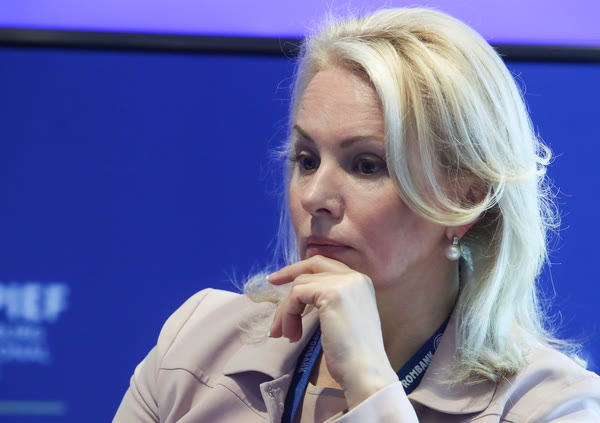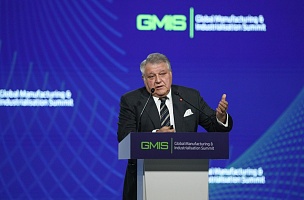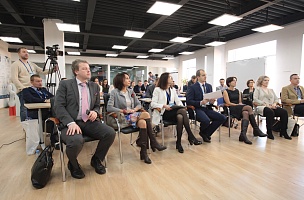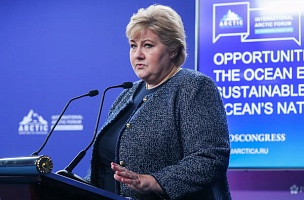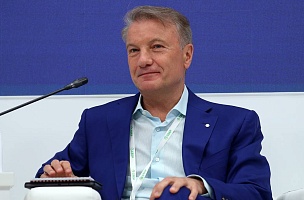Key conclusions
ESG is here to stay
«It would be a mistake to think that change and the sustainability were imposed on us, that it came from the outside. Absolutely not. I believe that for Russia and for Russian business, this has been a paradigm for a long time, it is not a fade that came from nowhere. Let us remember that the main values of sustainable development were enshrined at both the state and constitutional levels over a hundred years ago: in the constitution of 1918,» Natalya Tretyak, First Vice President, Gazprombank.
«There are discussions ranging from the idea that the sustainability agenda is no longer needed and it is an additional burden in these difficult times, all the way to the idea that the sustainability agenda can be used to make a leap forward. In other words, it allows to shift focus from prehistoric technology to long-term strategies for future generations and to see what happens next with different companies, industries, and, in general, at the national level. These are all questions that are back in conversation right now,» Svetlana Gerasimova, Head of Project Office ’Strategies and Practices of Sustainable Development’; Senior Lecturer, Plekhanov Russian University of Economics.
Regular people are increasingly more interested in environmental issues
«It is almost impossible to change course because something happened outside of our control. Moreover, we see that today consumer awareness in environmental and social aspects — that is, in all aspects of sustainable development — is growing rapidly, and consumer demands are increasing. <...> To refuse and change course is no longer an option!» Anna Meleshina, Member of the Management Board, Corporate and Sustainability Director, Magnit.
«We can see how much the people’s perception of environmental issues has changed in recent years. It is a radical change. The large number of environmental protests, accidents — all of this creates a large movement around the environmental agenda. We understand that people will continue to draw attention to this, and business will not simply stand by idly. This is why business will try to take these wishes into account,» Alexey Makrushin, Deputy Director General, Russian Environmental Operator.
«Historically, it has been important for many large Russian manufacturers that their products would be bought by foreign consumers, for whom the ecological footprint of products is very important. Many are now looking at new markets, such as Asia or the Middle East, and have already seen that Asian buyers are no less interested in the products’ ecological footprint than European or American ones,» Dmitriy Aksakov, Vice President, VEB.RF.
PROBLEMS
«The change in geopolitics will certainly affect the pace and maybe the application of these mechanisms, but it certainly does not override this agenda. Because the factors that triggered this transformation have not disappeared. Excuse me, no one has cancelled global warming... And the fact that, unfortunately, a number of countries have walked away from cooperation in this direction is shortsighted at the very least,» Natalya Tretyak, First Vice President, Gazprombank.
«This is the new reality. This is BANI-, not VUCA-world, it is not just complex and fragile, but really very vulnerable: everything can change at any moment. And this is the context in which we suggest that companies build long-term strategies? Naturally, deadlines are being revised, this agenda for companies to achieve their goals is being shifted to the right, and deadlines are being lengthened. On the other hand, business itself has begun to move to shorter planning cycles in such crisis moments,» Svetlana Gerasimova, Head of Project Office ’Strategies and Practices of Sustainable Development’; Senior Lecturer, Plekhanov Russian University of Economics.
Consumer responsibility will take time to build
«Business has to get used to operating guided by the principles of sustainable development. And our consumers must also develop a habit: how they go to the store, how they choose their products, what they do with the packaging after using the products, how they behave at home, whether or not they use the infrastructure for collecting secondary raw materials — this infrastructure is about to be ready. All of this will take a while,» Anna Meleshina, Member of the Management Board, Corporate and Sustainability Director, Magnit.
SOLUTIONS
Role of government in Russian ESG will increase
«We are still waiting for some kind of intelligible message from the state, for it to outline its priorities in this regard. And we are hearing something. Sustainable development as such remains. <...> We definitely hear these signals, they are broadcasted, and there is no rejection of the agenda. <...> The whole system cannot work without the attention of the government on this topic: this must be understood. And the priorities, of course, must be heard. One of the most important stakeholders of the agenda is the state,» Svetlana Gerasimova, Head of Project Office ’Strategies and Practices of Sustainable Development’; Senior Lecturer, Plekhanov Russian University of Economics.
«If we hear the message from the government — and we hear it, thank God, from the country’s leaders, and the President has repeated this idea many times, especially recently at various meetings — that our country will not close down and the economy remains open. It is stated that for our part we are not going to lower the iron curtain. Then if this is true, we remain in line with the global trend and movement. <...> All over the world, not just us, we are now refining our priorities, looking for new approaches and ways to solve problems. But the goals themselves remain the same, the vector remains the same. So, we are in it. And this means that when making any decisions, we must be guided by this vector and understand how far we have deviated from this track and how we will get back there,» Elena Feoktistova, Managing Director, Russian Union of Industrialists and Entrepreneurs.
«The reform is not only about creating sorting facilities, but also about launching a closed-cycle economy. What is the focus of this project? We have to create demand for the products obtained after processing and recycling by industrial enterprises. So that our builders, industrialists, farmers will take products obtained from recycled resources and use them in their production,» Alexey Makrushin, Deputy Director General, Russian Environmental Operator.


